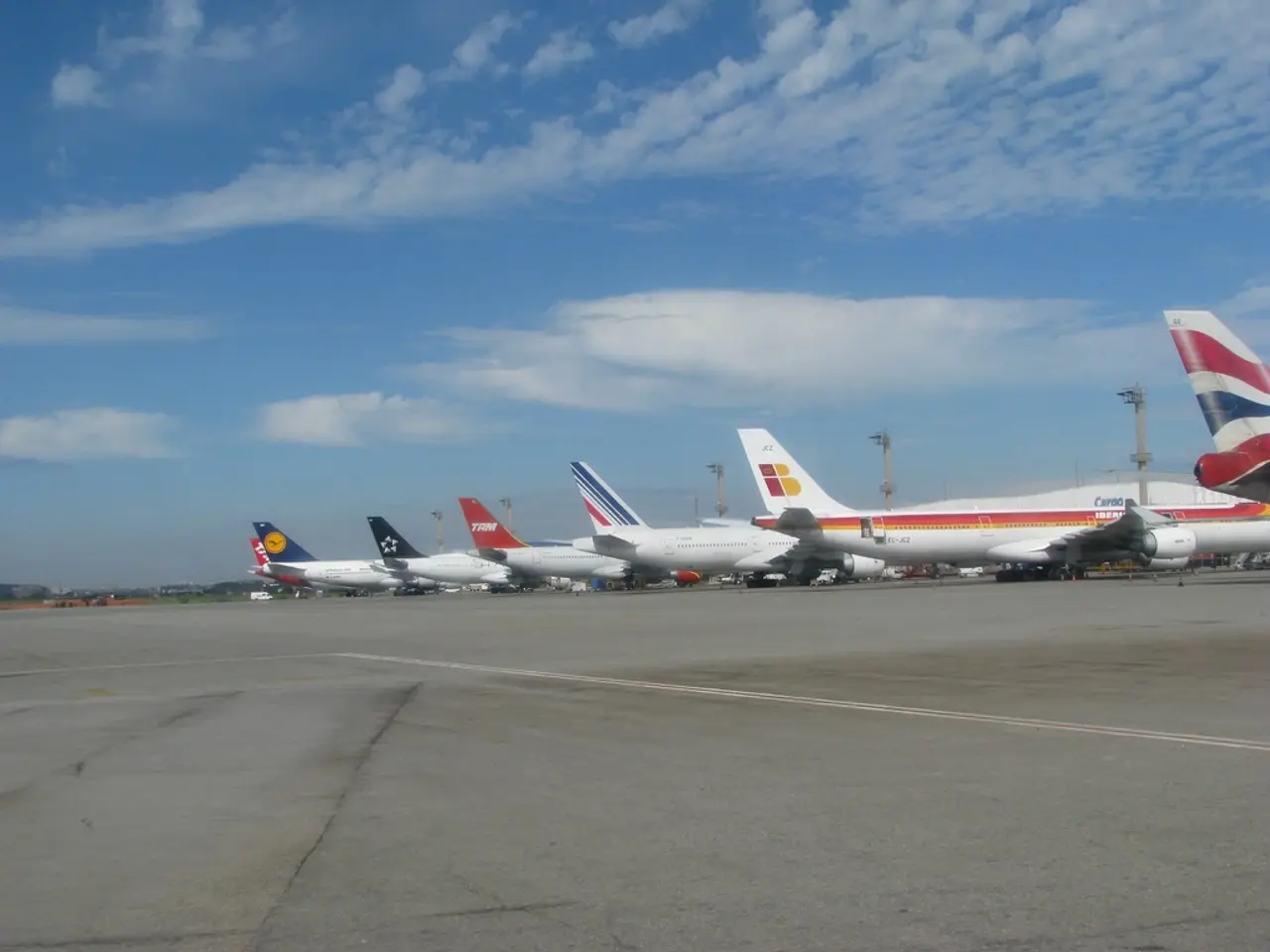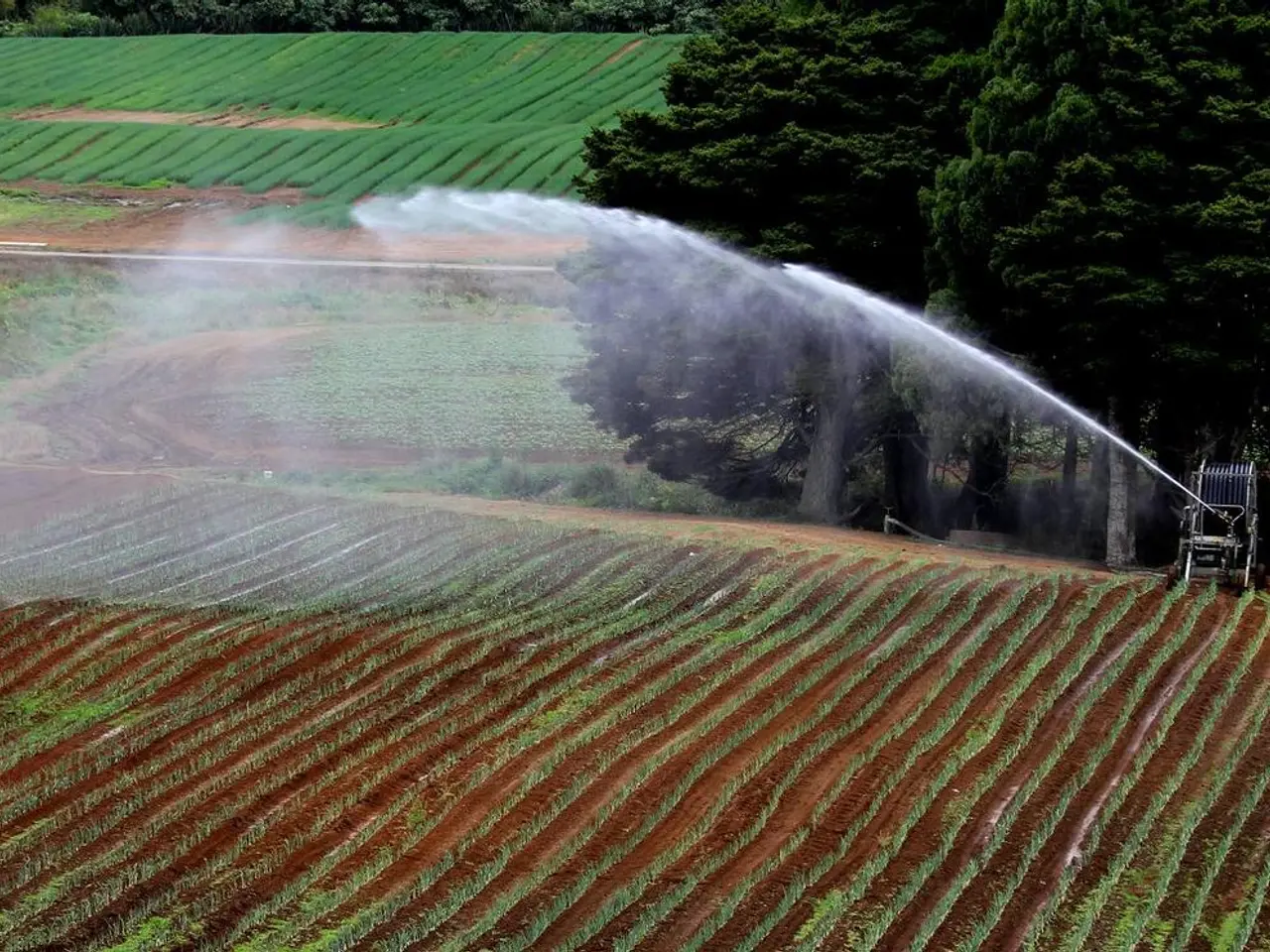Interview Discussion: Canada under Carney's Leadership
In the wake of Mark Carney's election as Canada's prime minister in 2025, US-Canada relations find themselves in a critical, intense phase, particularly concerning trade negotiations. The talks are described as complicated and reaching a crucial deadline within days [5].
Carney has emphasized Canadians’ desire for a "just and reasonable" deal that benefits Canada, highlighting his commitment to securing a favorable agreement amid uncertainty imposed by ongoing negotiations [5]. His leadership is perceived as calm, principled, and strategic, aligning well with public desire for steady governance, particularly among Liberal voters [2].
However, while Carney enjoys strong support in traits such as calmness (79%), conflict avoidance (77%), and clear communication (70%), his net favorability rating is slightly negative overall (-4) [2]. Perception gaps remain, notably in areas like putting the country ahead of politics and understanding ordinary Canadians, though these gaps are smaller than those of his main opponents [2].
Carney leads a Liberal minority government that relies on delicate parliamentary support, potentially making compromises on Quebec autonomy with the Bloc Québécois to maintain legislative functionality [3]. Despite his relatively strong electoral victory, he faces resistance from other parties and voter groups, contributing to the nuanced political landscape.
On the economic front, while Carney’s government maintains close ties with US and Western interests, particularly regarding NATO and security cooperation, it faces criticism for promoting austerity measures and policies aligned with fiscal restraint and military spending, which some view as controversial domestically [4].
As Carney pursues his ambitious plan to make Canada an energy superpower and export to new regions to diversify away from the US, he faces a challenge to lift energy production without backtracking on climate pledges [6]. Canada's first LNG shipment to Asia marks a step towards this goal [6]. Carney has offered tentative backing for new pipelines and a multibillion-dollar carbon capture project as a way to neutralize emissions and produce "decarbonized oil" [7].
The US relies on Canada as a security partner, particularly in the North American Aerospace Defense Command (NORAD) alliance [8]. However, the relationship between the US and Canada has been strained due to various breaches and tariffs, with the USMCA trade agreement set for a review next year [1]. Carney's government has put in place retaliatory tariffs affecting C$155bn worth of US imports as part of its countermeasures to Trump's hostilities [3].
The Alberta independence movement could gain traction akin to Brexit, according to concerns, with the main claim advanced by pro-independence advocates being that their oil and gas wealth is being squandered by the federal government [9]. Alberta premier Danielle Smith has lowered the threshold to hold a referendum on independence in response to party politics, but she is against Alberta becoming independent from Canada [9].
In the polls, Carney holds a 25-point advantage over opposition leader Pierre Poilievre [10]. Two out of three people polled approve of the way Carney is handling his job [11].
| Aspect | Details | |---------------------------|-------------------------------------------------------------------------| | US-Canada relations | Trade talks under intense, complicated negotiation phases, critical timing, focus on beneficial, fair deal for Canada[5] | | Carney’s leadership perception | Generally positive in leadership qualities (calm, principled, clear) with moderate overall favorability; strong base support but some wider perception gaps[2] | | Political context | Leading a Liberal minority government, reliant on Bloc Québécois support; negotiating in a complex parliamentary environment[3] | | Economic & policy stance | Advocates fiscal discipline, austerity, military spending, facing criticism for these but consistent with close US and NATO alignment[4] | | Energy policy | Pursuing energy superpower status, increasing energy output, pivoting to new markets, balancing energy production with climate pledges[6, 7] | | Security partnership | Strong reliance on US as a security partner, particularly in NORAD alliance[8] | | Alberta independence | Alberta independence movement gaining traction, concerns of squandered oil and gas wealth by federal government[9] | | Election polls | Carney holds a 25-point advantage over opposition leader Pierre Poilievre[10] | | Approval rating | Two out of three people approve of the way Carney is handling his job[11] |
- The complicated negotiations surrounding US-Canada trade relations, particularly focusing on a "just and reasonable" deal for Canada, are currently in a critical phase with a crucial deadline approaching within days.
- Mark Carney's leadership is perceived as calm, principled, and strategic, aligning well with public desire for steady governance, especially among Liberal voters.
- Despite relatively strong support in areas like calmness, conflict avoidance, and clear communication, Carney's net favorability rating is slightly negative overall, with some perception gaps in areas like putting the country ahead of politics and understanding ordinary Canadians.
- Carney's government, relying on delicate parliamentary support, potentially makes compromises on Quebec autonomy with the Bloc Québécois to maintain legislative functionality.
- While Carney’s government maintains close ties with US and Western interests, particularly regarding NATO and security cooperation, it faces criticism for promoting austerity measures and policies aligned with fiscal restraint and military spending.
- In pursuit of making Canada an energy superpower, Carney aims to increase energy output, pivot to new markets to diversify away from the US, and balances energy production with climate pledges.
- The Alberta independence movement could gain traction, similar to Brexit, with concerns that their oil and gas wealth is being squandered by the federal government, potentially creating a divide similar to that seen between England and Scotland.




